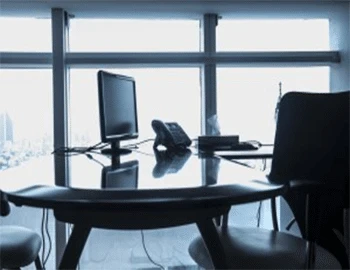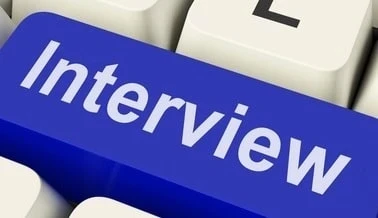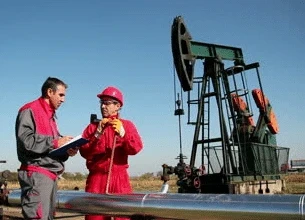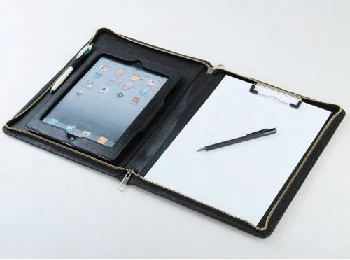How to Ace a Construction Industry Job Interview

How to Ace a Construction Industry Job Interview
Landing a job in the construction industry often requires more than just a strong resume – it also requires a successful job interview. In this post, we’ll be sharing some tips and strategies for acing a construction industry job interview, including how to prepare, what to expect, and how to showcase your skills and experience to potential employers
Having a strong resume is crucial for standing out as a candidate in the construction industry. A well-written and organized resume can help you showcase your skills, experience, and qualifications to potential employers, and increase your chances of getting an interview. Here are some key components of a strong construction industry resume:
- Relevant experience: When listing your work experience, be sure to highlight any construction-related jobs or internships you’ve had. If you don’t have a lot of direct construction experience, consider including any related jobs or volunteer work that demonstrate your skills and work ethic.
- Skills: In the construction industry, it’s important to showcase your technical skills and expertise. This can include things like proficiency with specific tools and equipment, knowledge of building codes and regulations, and experience with various construction materials and techniques. Be sure to highlight any relevant skills you have, and consider including any certifications or training you’ve received.
- Education: While education is not always required for entry-level construction jobs, it can be a valuable asset for those looking to advance their careers. If you have a degree or training in a related field, such as engineering or architecture, be sure to include it on your resume.
- Accomplishments: In addition to your work experience and skills, it’s important to highlight any notable accomplishments you’ve had in the construction industry. This can include things like completing a challenging project on time or under budget, or earning a certification or award.
- Formatting and presentation: In addition to the content of your resume, it’s important to pay attention to the formatting and presentation. Use a clear, easy-to-read font and structure your resume in a logical way, with headings and bullet points to highlight important information. Avoid using too much dense text or overly complex formatting, as this can make it difficult for a potential employer to quickly scan and understand your resume.
By following these guidelines and tailoring your resume to the specific needs of each employer, you can create a strong and effective resume that will help you stand out as a candidate in the construction industry.
Michael DeSafey is a leading executive recruiter for professionals in the construction, engineering, and environmental industries. He is currently the President of Webuild Staffing: www.webuildstaffing.com. To learn more about Michael, or to follow his blog, please visit www.michaeldesafey.com.
How to Communicate Effectively During A Telephone Interview

How to Communicate Effectively During A Telephone Interview
Many companies start the job interview process with a telephone interview to get to know a candidate before the in-person interview. This allows the interviewer to select the best potential employee for the next step in the interview process and save a lot of time. Some people don’t represent themselves best over the phone, so here are some tips to get you one step closer to being hired!
Know the industry
When you have a phone interview, research the company that might employ you and their industry. Every industry from construction, engineering to environmental has its own specific jargon and focus. Learn some of the phrases that will apply to your new position so that you can work them in during the conversation.
Listen!
Many people on phone interviews think that they have to do all of the talking. It’s important to let the other person on the line talk. Even more important, you should take the time to listen to what the person has to say. The interviewer may even be testing your listening skills as part of the process. Consider repeating things back to the interviewer and always wait to speak until they have completely finished what they are saying.
“um..?.”
Be conscious of what you say. If you do find yourself needing a moment to think, avoid using the word “um”. Consider a moment of silence instead. Try to eliminate any other unprofessional words in your language, too, such as “like”.
Practice makes perfect
Before your interview, be sure to practice your answers to probable questions. Common interview questions include:
- Why do you want to work for our company?
- What would you consider your greatest strengths and weaknesses?
- Where do you see yourself in five years?
- Name a time at your last position where you had to work as a team.
Knowing popular questions can help you prepare, but you also want to be ready for anything that comes your way. You should also practice maintaining your composure by asking a friend or relative to ask obscure questions to see how you handle the pressure.
Avoid distractions during the interview
Interviews are difficult enough as it is. You don’t need distractions. When it is time for your job interview, find a comfortable and quiet place that gives you good reception. Make sure any children or pets are being watched by someone else. You also want to make sure that you have a clear head, so drink your morning cup of coffee first. Finally, close the windows to avoid any noise from outside grabbing your attention. You want the interviewer to focus on you- not the chaos around you.
Getting the first interview is half of the battle. There must have been something that they liked about you based on your resume or application, so be confident! Whether it’s a construction job, an environmental job, or an engineering job, use these tools to get from the phone interview to the in-person interview.
Michael DeSafey is a leading executive recruiter for professionals in the construction, engineering and environmental industries. He is currently the President of Webuild Staffing www.webuildstaffing.com . To learn more about Michael or to follow his blog please visit www.michaeldesafey.com
How to More Effectively Communicate Your Value During the Job Search Process

How to More Effectively Communicate Your Value During the Job Search Process
It seems as though everywhere you look, there’s a new set of recommendations on how to write your resume more effectively, handle yourself during an interview, or communicate with future employers. Sometimes, you’ll even get contradictory advice! Ultimately, your goal is to effectively communicate your value to your future employer during the job search process. By utilizing these tips, you can learn to be more efficient with your communications and share the information to get the job in the construction, engineering or environmental industries.
- Give examples. Everyone’s resume is filled with words like “creative,” “problem-solver,” and “team player.” Most professionals now strongly encourage staying away from static lists of traits. Instead, you want to choose a better tactic: give examples of what you’ve accomplished. From your resume to your interview, highlight your best traits with examples of the actions you completed in your former positions. For example, you might say that you achieved a higher rate of sales than anyone else in your department or that you effectively saved your company ten percent of their marketing expenses by developing a more efficient plan. By highlighting your accomplishments instead of your traits, you show your future employer what you’re really capable of.
- Practice your answers. When you know you’ve got an interview coming, don’t just assume that you’ll be able to come up with the right answers to the most common interview questions.Instead, when you’ve got a big interview coming up, take the time to look over those lists of interview questions and consider how you would answer each one. Take the time to come up with examples. Consider writing out your answers, not to give to your future employer, but to give yourself a chance to put your thoughts in order.
- Keep the lines of communication with the company open. You don’t want to pester the HR department or your inside contact about whether or not you got the job, but you do want to make sure that they’re receiving the information you’ve sent them and that everything is moving smoothly. Take the time to communicate with prospective employers. Ideally, you should use the method set out by the company: if they contact you primarily via email, send emails back with your questions. If they prefer to communicate by calling, you should do the same. Don’t be disturbed, however, if it takes them a day or two to get back to you: remember that they have a number of applications besides yours to deal with and plenty of other things on their plates. Even if you’re rejected for a position, take the time to ask why. A personalized explanation could make it easier for you to get the next position you have your eye on.
- Network extensively. Get to know the company where you’d most like to be hired. As much as possible, make contacts inside the company–especially in the department where you’d like to work. The more time you spend with members of the team you’d like to work on, the better the chance they get to know you and everything you can bring to the table for their organization.
- Check your social media profiles. Everything from the LinkedIn profile you haven’t updated since the last time you were job hunting to the security settings on your Facebook profile could be important in your job search. Make sure that your online presence shows the face you want future employers to see. Clean up your public comments, make sure your profiles showcase your unique selling point, and check to be sure that your webpage, if you have one, shows your best work. Potential employers are going to do their homework and learn as much as they can about you. Make sure that what they learn paints you in the best possible light!
Setting yourself apart from other candidates can be a challenge. When you develop your communication skills and learn to market yourself, however, you’ll discover that it’s easier to step into the job of your dreams. Before you know it, you’ll be walking through the door of a new job in the place you’ve always wanted to work.
Michael DeSafey is a leading executive recruiter for professionals in the construction, engineering and environmental industries. He is currently the President of Webuild Staffing www.webuildstaffing.com . To learn more about Michael or to follow his blog please visit www.michaeldesafey.com
Tips For Interviewing The Interviewer; To Make The Best Impression

Tips For Interviewing The Interviewer; To Make The Best Impression
Interviewing is not easy and searching for the job in the construction, engineering and environmental industries is difficult enough on its own.
Interviews are almost like first dates where you are being challenged and judged by the organization you are interviewing with. Most job candidates do not realize though that they have more power than they think in an interview situation.
There is a lack of highly qualified professionals today in the construction, engineering and environmental industries and the truth is that you are also interviewing the organization just as much as they are interviewing you. Is this a company you actually want to work for as a civil engineer? Is this the ideal environment for a biologist? What would be your career path within the organization to achieve your goals?
Having the basic realization that your voice matters in an interview can empower you to take control of your career and find an opportunity that fulfills your career expectations. You are on a mission, after all to find the best job that suits your career needs.
By keeping these basic tips in mind as you interview it will help you find the best job for your career..:
Demonstrate Your Desire To Stick Around…
The interviewer is most likely swamped, wanting to fill open position quickly with qualified personnel. This is especially the case if you are applying for a position with ongoing projects that require immediate leadership and technical expertise. Hiring managers want to know that you are somebody they will not be seeking a replacement for in three months, especially if you are undertaking a major construction project for the company.
Demonstrate Your Institutional Knowledge…
Do your research ahead of time and demonstrate to the interviewer that you are aware of how they operate. Show that you understand their projects and marketplace. You may even want do some research to gain an understanding of their existing projects. Make yourself aware of their competitors and past accomplishments; so that you are ready to ask intelligent questions about the organization and their future growth plans.
Ask Questions..
Asking questions demonstrates interest. Feel free to ask if the position you are interviewing for is new or if there has been another employee working in the role? What projects you would have responsibilities for? Ask the Interviewer their thoughts on the position? Just make sure that you are asking professional questions that will give the employer a favorable impression, as well as, lead you to make a good choice in accepting a position with an employer for your career success.
Take Advantage Of Opportunities To Meet Staff Members…
If you are asked to meet other members of the team, jump on the opportunity. Not only will you be able to see if you are a good fit with other team members, but you can also ask other questions about work-life balance and each employees professional backgrounds and expertise.
Be Aware Of Red Flags..
Look for deal-breakers as you interview including difficult managers, odd personalities, lack of long term work or an uncomfortable workplace. Ultimately, it is important that you trust your instincts and look for work environments that suit your needs.
Just remember: even if your interview does not lead to a new career opportunity, you have gained great experience for the next interview. It will allow you to create a helpful set of skills that will aid you in the future.
Michael DeSafey is a leading executive recruiter for professionals in the construction, engineering and environmental industries. He is currently the President of Webuild Staffing www.webuildstaffing.com . To learn more about Michael or to follow his Blog please visit www.michaeldesafey.com
Nerves Be Gone: How to Succeed In A Panel Interview Setting

Nerves Be Gone: How to Succeed In A Panel Interview Setting
Nerves Be Gone: How to Succeed In A Panel Interview Setting
Preparing for an interview can be a nerve-racking experience for even the most seasoned professionals. Imagine, however, getting a call from a prospective employer requesting that you interview with several different managers– in a panel style setting.
The visions of sitting across from a handful of high-powered executives shooting rapid fire questions at you start to dance through your mind. You might begin to wonder how to succeed in a panel interview setting and avoid succumbing to the pressure. Just like in a traditional interview setting, preparation is key. Below we will discuss some tips for a successful panel interview:
Research the company. Know the company you’re meeting with inside and out. Research their services and their project portfolio. Grab a company brochure and visit their website. Familiarize yourself with industry lingo.Dress for success. Even if you’re applying for a role that will require you to visit rough or dirty places, a good rule of thumb is to dress as you would if you were visiting an important client.
Research the panelists. Know who you’re going to be meeting with and what their roles are in the company. That way, you can prepare yourself for what types of questions might be asked. Check out their bios on the company website. Look them up on LinkedIn. Avoid putting yourself in the position of being interviewed by a panel of people that you know absolutely nothing about.
Engage each panelist. Before the interview begins, introduce yourself to each person on the panel. Collect business cards to help you remember their names. If cards aren’t available, jot their names down on your notepad in the order that they’re seated. During the interview, address each panelist by name. Make eye contact with everyone– even when you’re answering another panelists’ question.
Showcase your adaptability. Discuss achievements that are relevant to the position at hand. Give examples of your own work, but relate it to what they build.
Connect questions. Referencing another panelists’ question when answering a new question shows that you’re an active listener who can make connections. It also allows you to reuse strong points from a previous answer and serves to draw the other panelists into the conversation.
Ask your own questions. Asking the panelists questions of your own shows that you’re interested and engaged in the process. Consider questions like, “What do you think makes someone a successful project manager at this company?”
Follow up with everyone. Sure, it’s a little bit of extra work, but it’s worth the effort. Reach out to each panelist to thank them specifically for meeting with you. Make sure to personalize each note.
Finally, remember that panel interviews aren’t an attempt at intimidation. In fact, most companies simply use them as a time-saving tactic. Rather than viewing them as a distressing experience, consider panel interviews an opportunity to showcase your unique strengths to several influential managers at one time.
Michael DeSafey is a leading executive recruiter for professionals in the construction, engineering and environmental industries. He is currently the President of Webuild Staffing www.webuildstaffing.com To learn more about Michael or to follow his blog please visit www.michaeldesafey.com
Are You Prepared: Research The Employer Before Going To The Interview..

Are You Prepared: Research The Employer Before Going To The Interview..
As a professional recruiter who has been working and recruiting professionals in the environmental, engineering and construction industries for over 18 years now at Webuild Staffing, I have found many people exceptional career opportunities, but some do not prepared themselves for the interview.
Have you done your homework on the company you are interviewing with? Do you know what they sell? How they market their products? Who the executives are?
Well, it’s time to start learning about the company you are interviewing with. Their products, services, corporate culture, personnel, financial stability, etc. This is an essential step in succeeding to have a successful interview.
Following these tips and doing your homework before the interview will allow you as a candidate to stand out in a crowded pool of applicants and show the hiring manager how your skills and qualifications will benefit their organization.
Employers Website – Review It!!!
The easiest way to research a company is the internet. The company’s website provides a content rich environment in which you can learn about the organization, products/services, financial history, and personnel.
Review the products, services and gain an understanding of the market niche the company focuses on, who they sell to, the type of people they hire, and how the company is performing financially will all aid you greatly in having a fruitful conversation while at your interview.
News And Press Releases
While on the company website review the press releases they have published. This will provide you with a history of performance, accomplishments, and news about the organization in which you can use during the interview. Having a solid understanding of where the company has come from and how they have succeed will go a long way in the hiring manager’s eyes. Candidates that take an interest in the company and follow a company’s growth will always give them a step up in the hiring process.
Current Employees – Do You Know Any?
Research who is working at the firm currently, do you know anyone? One of the best ways to learn quite a bit about an organization is to talk with people who have worked there or are currently working for the firm. Use internet resources like LinkedIn to search and network. See if you can strike up a conversation as it can give you insightful information about corporate culture, company successes, and challenges, etc. The more networked you are the greater the possibility that you will know someone at the company.
Learn About The Companies Products And Services
You are a consumer!! So what is it that the company is selling? Would you buy the product or services? Have you ever bought their products? If so, what did you think? What did you like about it, dislike?
The simple action of interacting with a company’s products or services will allow you a gain an exceptional insight into a company’s products and having that insight for an interview is priceless, as you are the end user have an insight of the product which the company cannot; user experience.
This is a very powerful insight which you as a candidate can leverage to express your interest in the company, products and how your skills will help the company grow.
Remember that taking some time and doing some basic research on an organization before the interview will allow you to step above the crowded applicant pool and increase your chances in succeeding in obtaining your next exceptional career opportunity.
Michael DeSafey is a leading executive recruiter for professionals in the construction, engineering and environmental industries. He is currently the President of Webuild Staffing (www.webuildstaffing.com). To learn more about Michael or Follow his Blog please visit www.michaeldesafey.com
Looking To Work In The Oil And Gas Industry?? Now Is The Time..

Looking To Work In The Oil And Gas Industry?? Now Is The Time..
As a professional recruiter who has been working and recruiting professionals in the environmental, engineering and construction industries for over 18 years now at Webuild Staffing, I have placed many exceptional candidates in positions within the oil and gas industry.
This market has been heating up for many years now domestically and candidates have been asking how to break into this industry and structure a resume specifically to obtain a job within the oil and gas industries.
In the past when we thought of oil and gas production our thoughts immediately turned to overseas and the Middle East. Today with the onset of new technologies such as hydraulic fracturing (fracking), and safe ocean exploration techniques; companies throughout north America have been able to reach new ocean and land deposits which were previously unreachable with the technologies of the past.
This technology has led to an expansion of employment within the oil and gas industries throughout North American from companies large and small looking to capitalize on this marketplace expansion; but individuals seem to struggle to find these jobs and structure a resume to focus their skills for these employer’s needs.
Truck drivers, Welders, Heavy Equipment Operators, Machinists, Oil Rig Operators, Geologists, Engineers, Administration Personnel, Project Managers, etc.. are all needed by these employers and they are willing to compensate employees well above national standards.
Newcomers to the industry need to start their job search by learning the basics about the industry; look at what companies are working in the marketplace, types and locations of projects they are working on, technologies they are using, types of people they are hiring and the skills that are needed do to the jobs they require.
Once you have a general understanding of the market it’s now time to establish some relationships. Talk with HR managers about their needs, network with professionals already working within organizations that you are interested in, go to informational interviews or career fairs, talk with oil and gas industry staffing agencies / recruiters to learn more. Making as many contacts as you can will get you noticed and express your desire to work within this growing industry.
It is also necessary to have a properly structured resume tailored to the oil and gas industry. All the typical resume writing rules apply; but you want to focus your skills to address the needs of hiring managers within the oil and gas industries. Have a properly formatted objective; showcase the skills you have that employers need in the industry. Once you send a resume out, call the employer on the phone, talk with them and express your interest. Always be selling yourself and what you can add to their organization.
As a candidate you need to stand out in a pool of many applicants as the marketplace is crowded with individuals looking for brighter career prospects; your goal is to shine and obtain the career opportunity that will lead to long term career success.
Michael DeSafey is a leading executive recruiter for professionals in the construction, engineering and environmental industries. He is currently the President of Webuild Staffing (www.webuildstaffing.com). To learn more about Michael or Follow his Blog please visit www.michaeldesafey.com
Interview Anxiety!! How To Combat It Successfully…

Interview Anxiety!! How To Combat It Successfully…
As a professional recruiter who has been working and recruiting professionals in the environmental, engineering and construction industries for over 18 years now at Webuild Staffing, I have seen and talked with many candidates that have lost job opportunities because of interview anxiety..
Having some anxiousness or anxiety before an interview is always a good thing; it means you are truly interested in working for and leaving a good impression with the firm you are interviewing with. When this anxiety rises to a level where your communication skills and overall health prevent you from advancing in your career or obtaining a new career opportunity; it’s time to take a look at why this is occurring and find a solution to your anxiety.
Most employers want their employees to exhibit confidence, strength and provide an excellent service to their clients; when you are interviewing for a job you always want to show your abilities to handle stress and portray a professional image. When you place to much stress on yourself to get the job in an interview setting you may find your job search beginning to spiral out of control.
So here are some tips to keep your stress and anxiety under control;
(1) Prepare and do your homework on the company you are interviewing with. Learn about their products, services, corporate culture, the job you are interviewing for, who you will be interviewing with and make a list of questions you can ask.
(2) Practice interviewing. Practicing interviewing will make you more comfortable in an interview setting. Rehearse typical questions you may be asked in the interview. Ask a friend to interview you or use a video camera to interview yourself; knowing how it feels to be interviewed will greatly relieve the stress in a real interview setting.
(3) Make a list of your strengths and weaknesses. Practice talking about yourself.
(4) Visit the interview site the day before your interview; so you don’t get lost looking for it right before your interview. See what people are wearing
(5) Prepare you clothes the night before. Wear clean, properly fitting clothing that fits the environment in which you will be interviewing.
(6) Get enough sleep the night before; do not go to an interview looking tired and worn-out. Eat a good breakfast the day of the interview.
(7) Arrive to the interview 10 to 15 minutes early.
(8) Consider the interview a two way conversation; this is not an interrogation. During the interview focus your attention on the interviewer, ask questions and think about your answers. If necessary pause a few seconds to think about what you are going to say first.
(9) Bring examples of your work with you; having visual aids always helps to presenting your experience to an interviewer. Show off your hard work, celebrate the success you have had.
Utilizing these simple tips will help combat your interview anxiety and succeed in obtaining your next career opportunity.
Michael DeSafey is a leading executive recruiter for professionals in the construction, engineering and environmental industries. He is currently the President of Webuild Staffing (www.webuildstaffing.com). To learn more about Michael or Follow his Blog please visit www.michaeldesafey.com
Show Case Your Work!! The Importance Of Portfolios In An Interview..

Show Case Your Work!! The Importance Of Portfolios In An Interview..
As a professional recruiter who has been working and recruiting professionals in the environmental, engineering and construction industries for over 18 years now at Webuild Staffing, I have found candidates that have developed project portfolio’s achieve greater success in communicating their experience and abilities during an interview.
Portfolios were originally used in the photography and design industry, but now have become very popular in the architectural, construction, engineering and environmental markets. When used properly they showcase your career history and provide an example of what you have accomplished from a project perspective, as well as, showcasing your professional growth with a solid collection of paper documentation or digital files in one cohesive location.
The portfolio allows you as a candidate to communicate with an interviewer on a deeper level; adding a visual aid will help create a two-way dialog in discussing how you would be a good fit for the position you are interviewing for.
The more experience you have the larger your portfolio will become over the years. It is a good idea to constantly update your portfolio and keep items within the portfolio relevant to the position you are interviewing for. You do not want to present an interviewer with a 100 page document of all the projects you have ever worked on. Keeping the most relevant and important items in the portfolio is best to be able to touch on those projects, reports or items and make the best use of your time during the interview.
When organizing your portfolio; items should be organized in sections; career documentation (resume, references, professional licenses, certifications, letters of reference, transcripts, and educational verification materials), project examples (project descriptions, project documentation, pictures, etc.) and work samples (reports and other documentation you created
that may be beneficial for a potential new employer to review).
If your portfolio is in hard copy, keep it as organized and clean as possible. Use a binder, section dividers / tabs and make sure the documents are securely fastened within and not wrinkled or torn.
As technology has advanced so significantly over the years in presenting information via digital media; you can additionally store your portfolio on a website, in a digital magazine, pdf or personal network in which you can utilize for presenting information to an interviewer via ipad, laptop or mobile phone during your interview. When done properly this can be a very effective method to have in your interviewing arsenal.
As with anything though, this is just one of many tools that candidates should be utilizing to communicate their experience during an interview. Candidates should always keep in mind the best tool to establish rapport and obtain a career opportunity is direct verbal communication with an interviewer the portfolio is only an aid to allow that communication channel to open up.
Michael DeSafey is a leading executive recruiter for professionals in the construction, engineering and environmental industries. He is currently the President of Webuild Staffing (www.webuildstaffing.com). To learn more about Michael or Follow his Blog please visit www.michaeldesafey.com
What A Handshake Says About You? Shake Hands The Right Way…

What A Handshake Says About You? Shake Hands The Right Way…
As a professional recruiter who has been working and recruiting professionals in the environmental, engineering and construction industries for over 18 years now at Webuild Staffing , I have noticed how important that first handshake has become in an interview setting.
In society today, the handshake is the most common way to greet another person in a business setting. You extend your hand as a courtesy and introduction to another person.
There is something very significant about the way you shake hands; especially in an interview setting where the handshake is the first impression an interviewer gets of you when you meet them for the first time. That impression will set the stage for the balance of the interview.
How you shake hands is a skill that needs to be learned and practiced. According to the popular book “Peoplesavvy” There are many types of handshakes and the meanings behind them.
1. Sweaty Palms – When a person is nervous their sympathetic nervous system often becomes overactive, sometimes resulting in sweaty palms.
2. Dead Fish – Are indifferent handshakes that feel like the person has no bones in their hand and often indicate a passive or reserved personality. This handshake ranks as the number two least favored handshake. Individuals with this type of clasp are generally not people-focused.
3. Brush Off – This handshake type is a quick grasp and then a release that feels like your hand being shoved aside. This handshake is a statement of “it’s my turf and my agenda that matters, yours doesn’t.”
4. Controller – You feel your hand being pulled toward the person or strongly guided in a different direction, perhaps towards a chair. People who do this are controllers. This means they want to dominate any inanimate or animate object in the room (and that would include you).
5. Politician – Your hand is firmly grasped as in a normal handshake. However, their other hand may cover yours or be placed on your forearm or shoulder. Unless the two of you are good friends, this is a form of false sincerity. The person is attempting to communicate that the two of you have a deeper relationship than you actually have.
6. Finger Vice – When someone grabs your fingers and not your entire hand it is meant to keep you at a distance. These people are often insecure. If they also crush your fingers they are adding a show of personal power, which is also designed to keep you at a distance or at least create some fear of challenging them.
7. Bone Crusher – The message of squeezing your hand until you cringe is clearly designed to intimidate you. Even when the person may not know how strong they are, there is still a message of intimidation and power behind the grip. You don’t have to pretend to be a wimp with them, and, in fact, they may respond positively to you if you present yourself with strength. Just don’t get into a hand-squeezing contest when you shake because then it becomes a competition and even if you win, you’ll lose.
8. Lobster Claw – Like the claw of a lobster, the other person’s thumb and fingers touch the palm of your hand. The person doing this fears connecting at a deep level and may have challenges building relationships.
9. Hand Wrestler – Your hand is taken normally and then twisted under the other person’s. This is usually done aggressively. Be very careful in your own presentation as this person is absolutely committed to being on top, regardless of what they say they want.
10. Teacup – This handshake feels normal except that there is no palm-to-palm contact. The other person’s palm is cupped, like a teacup. This handshake indicates that the person is hiding something from you. It might just be a serious case of shyness or it could be something more substantial.
Knowing how to properly greet an interviewer takes some practice: So here are the some tips to make your handshake great, and avoid all the pitfalls listed above.
(1) Begin With An Oral Introduction Of Yourself – As you extend your hand to the interviewer, introduce yourself.
(2) Extend Your Entire Hand And Grasp With Your Whole Hand Using A Strong Palm – Shaking hands with a cupped palm, weak grip, crushing, over squeezing, or twisting motion are all signs of insecurity and weakness.
(3) Pump Your Hand Only 2 -3 Times. – The actual handshake should be fairly short; 1 to 2 seconds is ideal, anything beyond that may make the interviewer a little uncomfortable.
(4) Don’t Shake Your Entire Body – Shake hands from the elbow down, without jolting your entire body.
(5) Use Only One Hand – One hand is better than two, utilizing two hands may be seen as to personal and intrusive to an interviewer.
(6) Make Sure Your Palms Or Fingers Are Not Sweaty – Before shaking hands discreetly make sure your palms and fingers are dry. Indiscreetly wipe them on your clothing or with a handkerchief.
The ideal handshake should convey confidence, aid in making an introduction and almost go as an unnoticed action with the interviewer. Practicing these tips will greatly aid in having a success interview and favorable impression of you from the start.
Michael DeSafey is a leading executive recruiter for professionals in the construction, engineering and environmental industries. He is currently the President of Webuild Staffing (www.webuildstaffing.com). To learn more about Michael or Follow his Blog please visit www.michaeldesafey.com
Don’t Talk So Much!! How Not To Talk Your Way Out Of A Job..

Don’t Talk So Much!! How Not To Talk Your Way Out Of A Job..
As a professional recruiter who has been working and recruiting professionals in the environmental, engineering and construction industries for over 18 years now at Webuild Staffing . On many occasions I have found candidates talking so much during the interview that they talk themselves right out of consideration for a job opportunity.
Do you consider yourself a talker? Been told you have the gift of gab? Well it’s time to set some rules so you do not talk your way out of consideration for a job.
It is important to remember that you are being interviewed to see if your skills, qualification and overall personality will fit into an organization. Interviewers are only human, the hire who they believe are the most talented professionals, as well as, the individuals they like and will enjoy working with.
So it is important to remember interviewers are just like you; human. Their attention spans only last so long and having an effective two way conversation during an interview is critical to your success.
So Now The Rules:
(1) Your responses to typical interview questions should be thought out in advance; do your planning!! Prepare for the interview!!
(2) Your responses to questions should only last one minute to 90 seconds.
(3) Do not over elaborate on subjects. Answer questions directly and thoughtfully. Stay on subject.
(4) Treat any negatives in your background as positives.
(5) Do not get into long winded personal details about yourself. Keep the conversation professional.
(6) Ask questions!! Engage the interviewer and keep his attention.
Interviewers are skilled at nodding their heads and saying hmm. When you see this occurring during your interview their minds are beginning to wander and you are losing their attention. You need to remember the rules and re-engage them so they begin listening to what you are saying again; rather than thinking about the next question they are going to ask and/or formulating an opinion about you before the interview is over.
If you keep your gift for gab under control and remember these rules, you will be amazed in how successful your interviewing experiences will be.
Michael DeSafey is a leading executive recruiter for professionals in the construction, engineering and environmental industries. He is currently the President of Webuild Staffing (www.webuildstaffing.com). To learn more about Michael or Follow his Blog please visit www.michaeldesafey.com
